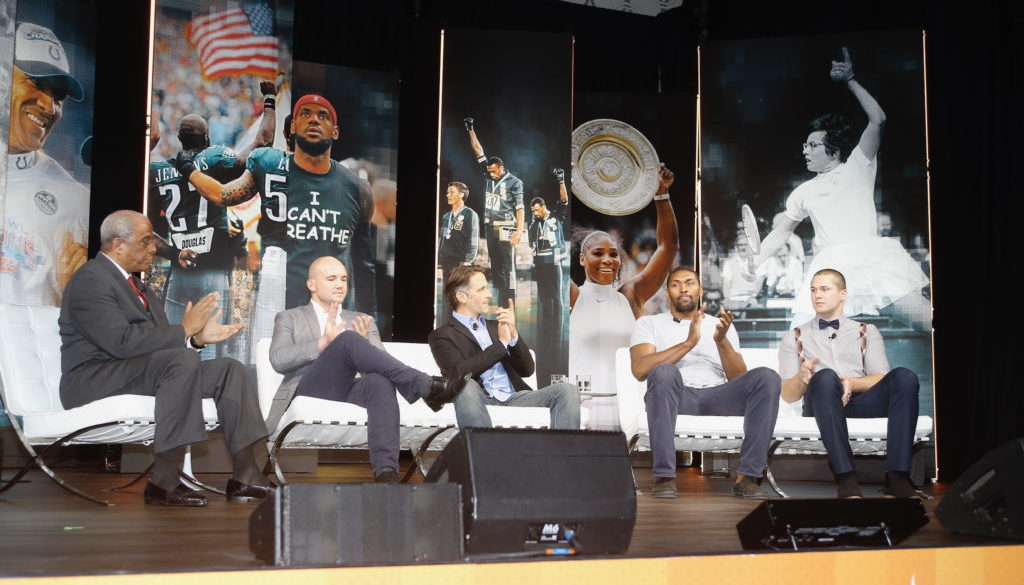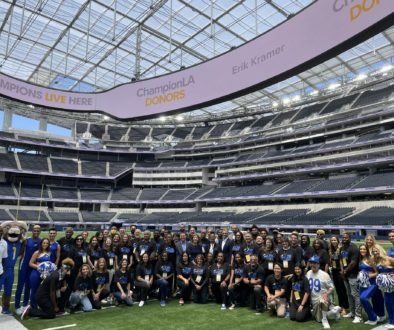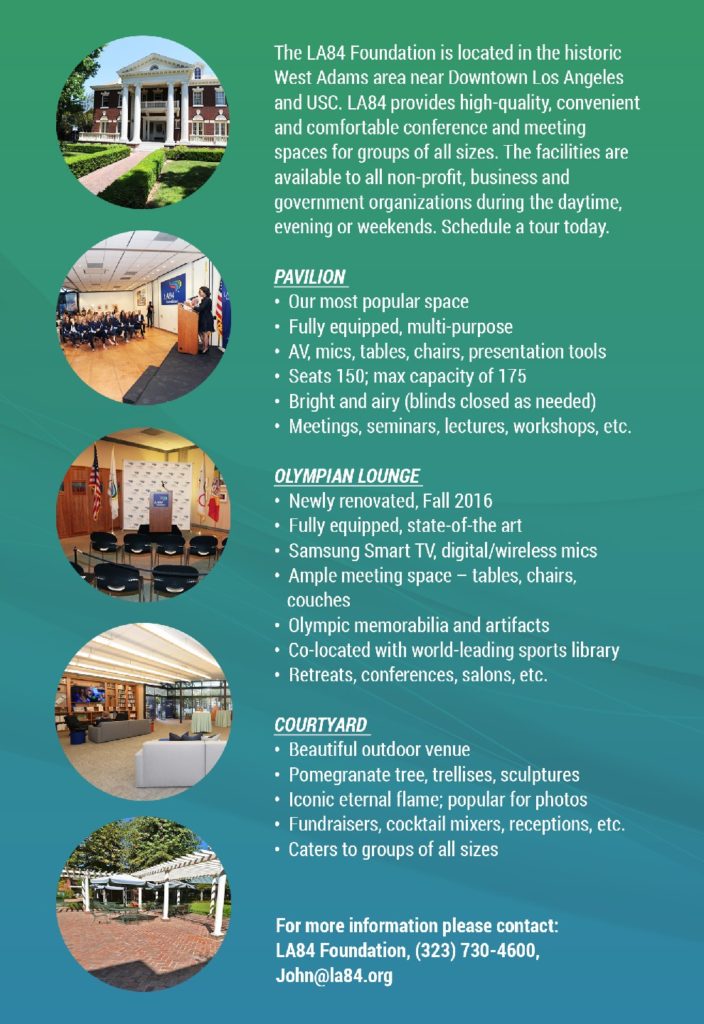2018 LA84 Foundation Summit Recap: Athletes as Health Activists
By: Michael Silver
The afternoon sessions at the 2018 LA84 Foundation Summit kicked off with a panel discussion focused on athletes being activists for better mental and physical health.
Speakers included former All-American & NFL linebacker Chris Borland, Chiropractor Dr. Tommy John, NBA World Champion and philanthropist Metta World Peace, and NCAAF defensive end Riley Tindol.
Moderated by Dr. William D. Parham, a professor at Loyola Marymount University and the NBPA Mental Health & Wellness Program Director, a spirited and honest conversation was conducted.
Borland opened up the dialogue explaining his career arc, which led him to the professional ranks of football. After a successful rookie season with the San Francisco 49ers, he studied repetitive brain injuries due to personal history of concussions and decided to retire from the sport. He didn’t expect what came next.
“I was thrust into a role as an activist, and at first to be honest, I didn’t want to do it. Over the past three years I’ve been involved with a variety of projects. It’s been a really interesting journey and I’m excited for this conversation,” Borland said.
Dr. John bares the same name as his father, most notable for sports reconstructive surgeries. He shared statistics showing that 60 percent of athletes requiring these procedures are between 16 and 19 years of age. While running a youth baseball camp during winter, he realized young athletes should be outdoors and not specializing in one sport. This would decrease ACL injuries and other abnormalities as the body is developing, he said. He chose to close his business and become a chiropractor, to help more people.
“In my practice its bigger than arms, knees, and backs. I’ve got kids coming into my office medicated for anxiety and depression because of their inability to perform in their youth sporting experience,” John said.
As a child growing up in the Queensbridge projects of New York City, Metta World Peace was affected by his community. Drugs, gang violence, and missing a father figure all contributed to an uncertain future. Growing up, he learned about anxiety and depression and chose to speak out about his personal challenges.
“Mental health, parenting and partnership is important. Having a strong family will help provide less stress and anxiety. Kids who go on to play high school and college sports deal with dysfunction and separation in the household. It’s time to teach them about parenting, partnership starting with youth sports and that’s my mission,” World Peace said.
Riley Tindol played defense end at Vanderbilt University and through his experiences in college, became an activist for mental heath awareness.
Tindol believed he needed to speak up for himself and the youth.
“Mental health, as well as physical health is a problem. There are 1,300 universities and colleges around the U.S. and each have a sports and training staff to help players recover quickly from injury. Unfortunately there are less than 35 universities that have sports psychologists on staff and that’s staggering. We are doing an injustice to all the athletes and future athletes,” Tindol said.
Dr. John opened up about his family and personal struggles with mental health. “We don’t choose anything, it finds us if we listen enough.”
The discussion turned towards parenting as World Peace explored his upbringing and how young athletes rely on coaches and teachers during tough times in their adolescent years.
“The school systems essentially for me are the parents because a lot of our kids grow up separate from the father, in my experience. For one we need to pay the teachers more. We are asking the teachers to be the parents to our children and they are tasked with taking the stress off of all these kids. We need to put the school system and teachers in a position to learn how to be parents to these kids who don’t have parents,” he said.
Tindol would then divulge about a pivotal point in his life, which led him to being an activist for mental health.
“Why I stopped playing football was due to mental health issues and that was hard. To go from waking up and doing something every single day, to that no longer being my life. I have bi-polar disorder and I’ve found that common from doing this and speaking with others. It’s important to grown the mind, body, and soul but we have to be there to listen and engage in dialogue, have those hard conversations, and talk about things that are uncomfortable to find that commonality,” he said.
Taking control of oneself and realizing you’re in a position for change is part of the battle to succeed. Dr. John gave a personal anecdote as how he works with patients and the methods used to achieve their goals.
“It’s about empowerment. When people come into my office asking ‘Can you fix me?’ No. I’ll be along aside you and will follow the breadcrumbs you leave behind but in all seriousness you are going to heal you. You are the main player in this whole thing,” he said.
Dr. Parham’s closing remarks touched on the sense of healing and a mantra he teaches his students.
“A person will never see their reflection in running water, it is only when the water is still that a reflection will begin to emerge.”
He also passed along a message of guidance saying, “If you want to lead the orchestra, the maestro needs to turn his or her back to the audience and leave out the noise that comes from the world and our own selves.”





